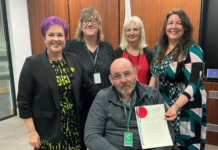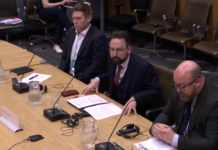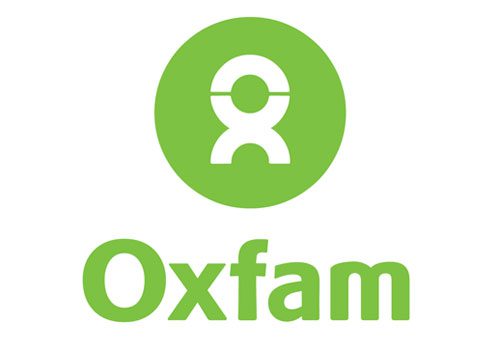Pre-Davos report shows how 1% now own more than rest of us combined
Runaway inequality has created a world where 62 people own as much as the poorest half of the world’s population, according to an Oxfam report published today ahead of the annual gathering of the world’s financial and political elites in Davos. This number has fallen dramatically from 80 last year and 388 as recently as 2010.
An Economy for the 1%, shows that the wealth of the poorest half of the world’s population – that’s 3.6 billion people – has fallen by a trillion dollars since 2010. This 41 per cent drop has occurred despite the global population increasing by around 400 million people during that period. Meanwhile the wealth of the richest 62 has increased by more than half a trillion dollars to $1.76tr. Just nine of the ‘62’ are women.
Although world leaders have increasingly talked about the need to tackle inequality, the gap between the richest and the rest has widened dramatically in the past 12 months. Oxfam’s prediction – made ahead of last year’s Davos – that the 1% would soon own more than the rest of us by 2016, actually came true in 2015, a year early.
Oxfam is calling for urgent action to tackle the inequality crisis and reverse the dramatic fall in wealth of the poorest half of the world. It is urging world leaders to adopt a three-pronged approach – cracking down on tax dodging, increased investment in public services and action to boost the income of the lowest paid. As a priority, it is calling for an end to the era of tax havens which has seen increasing use of offshore centres by rich individuals and companies to avoid paying their fair share to society. This has denied governments valuable resources needed to tackle poverty and inequality.
It is three years since David Cameron told Davos that he would lead a global effort against aggressive avoidance in the UK and in poor countries, yet promised measures to increase transparency in British Overseas Territories and Crown Dependencies, such as the Cayman Islands and British Virgin Islands, have not yet been implemented.
Mark Goldring, Oxfam GB Chief Executive, said: “It is simply unacceptable that the poorest half of the world population owns no more than a small group of the global super-rich – so few, you could fit them all on a single coach.
“World leaders’ concern about the escalating inequality crisis has so far not translated into concrete action to ensure that those at the bottom get their fair share of economic growth. In a world where one in nine people go to bed hungry every night we cannot afford to carry on giving the richest an ever bigger slice of the cake.
“We need to end the era of tax havens which has allowed rich individuals and multinational companies to avoid their responsibilities to society by hiding ever increasing amounts of money offshore.
“Tackling the veil of secrecy surrounding the UK’s network of tax havens would be a big step towards ending extreme inequality. Three years after he made his promise to make tax dodgers ‘wake up and smell the coffee’, it is time for David Cameron to deliver.”
Carys Mair Thomas, Head of Oxfam Cymru, said: “Economic inequality is a global problem, which we see here in Wales too. We released new calculations just last week that revealed that 16% of the Welsh population now have as much wealth as everyone else in Wales put together – demonstrating the extent of economic inequality in Wales.
Professor Calvin Jones, Professor of Economics at Cardiff University, said: “The data shows the staggering and increasing distance between the top and bottom of the world’s income distribution.
“Even more worrying perhaps than the bare figures is the way that the behaviour of the people at the top is sucking money from the poorest economies, and hence hindering the key developmental investments that are required to move them along a path to provide welfare and prosperity for the bulk of their citizens.”
Globally, it is estimated that super-rich individuals have stashed a total of $7.6tr in offshore accounts. If tax were paid on the income that this wealth generates, an extra $190bil would be available to governments every year.
As much as 30 percent of all African financial wealth is estimated to be held offshore, costing an estimated $14billion in lost tax revenues every year. This is enough money to pay for healthcare for mothers and children that could save 4 million children’s lives a year and employ enough teachers to get every African child into school.
Nine out of ten WEF corporate partners have a presence in at least one tax haven and it is estimated that tax dodging by multinational corporations costs developing countries at least $100billion every year. Corporate investment in tax havens increased almost quadrupled between 2000 and 2014.
At the G8 in 2013, David Cameron promised that both the UK and the UK’s Overseas Territories and Crown Dependencies, would introduce public registers of companies’ owners in an effort to crack down on the use of shell companies to avoid tax. The UK has fulfilled that promise but so far only one Overseas Territory, Montserrat, and not a single Crown Dependency has followed suit.
Allowing governments to collect the taxes they are owed from companies and rich individuals will be vital if world leaders are to meet their new goal, set last September, to eliminate extreme poverty by 2030.
Although the number of people living in extreme poverty halved between 1990 and 2010, the average annual income of the poorest 10 per cent has risen by less than $3-a-year in the past quarter of a century. That equates to an increase in individuals’ daily income of less than a single cent a year.
Had inequality within countries not grown between 1990 and 2010, an extra 200 million people would have escaped poverty.
One of the other key trends behind rising inequality, set out in Oxfam’s report is the falling share of national income going to workers in almost all developed and most developing countries and a widening gap between pay at the top and the bottom of the income scale. This particularly affects women, who make up the majority of low paid workers around the world.
By contrast, the already wealthy have benefited from a rate of return on capital via interest payments, dividends, etc, that has been consistently higher than the rate of economic growth. This advantage has been compounded by the use of tax havens which are perhaps the most glaring example set out in the report of how the rules of the economic game have been rewritten in a manner that has supercharged the ability of the rich and powerful to entrench their wealth.
Action to recover the missing billions lost to tax havens needs to be accompanied by a commitment on the part of governments to invest in healthcare, schools and other vital public services that make such a big difference to the lives of the poorest people.
Governments should also to make sure work delivers an acceptable standard of living for those at the bottom as well as for those at the top – including moving minimum wage rates towards a living wage and tackling the pay gap between men and women.
Goldring added: “Ending extreme poverty requires world leaders to tackle the growing gap between the richest and the rest which has trapped hundreds of millions of people in a life of poverty, hunger and sickness.
“It is no longer good enough for the richest to pretend that their wealth benefits the rest of us when the facts show that the recent explosion in the wealth of the super-rich has come at the expense of the poorest.”
The number of people whose wealth is equal to that of the poorest half of the world’s population since 2010:
| 2010 | 388 |
| 2011 | 177 |
| 2012 | 159 |
| 2013 | 92 |
| 2014 | 80 |
| 2015 | 62 |
Wealth of 1%, 50%, and 99% taken from Credit Suisse Global Wealth Databook (2014 and 2015)
Oxfam Cymru investigated the distribution of wealth in Wales and calculated that 16% of the Welsh population now have as much wealth as everyone else put together. The calculation is based on information provided by the office of National Statistics, using the (15 May 2014) “Wealth in Great Britain Wave 3, 2010-2014”. For more information please get in touch. This information in contained within Oxfam Cymru’s Blueprint for Change.
Help keep news FREE for our readers
Supporting your local community newspaper/online news outlet is crucial now more than ever. If you believe in independent journalism, then consider making a valuable contribution by making a one-time or monthly donation. We operate in rural areas where providing unbiased news can be challenging. Read More About Supporting The West Wales Chronicle






















